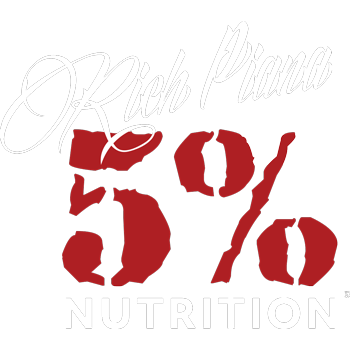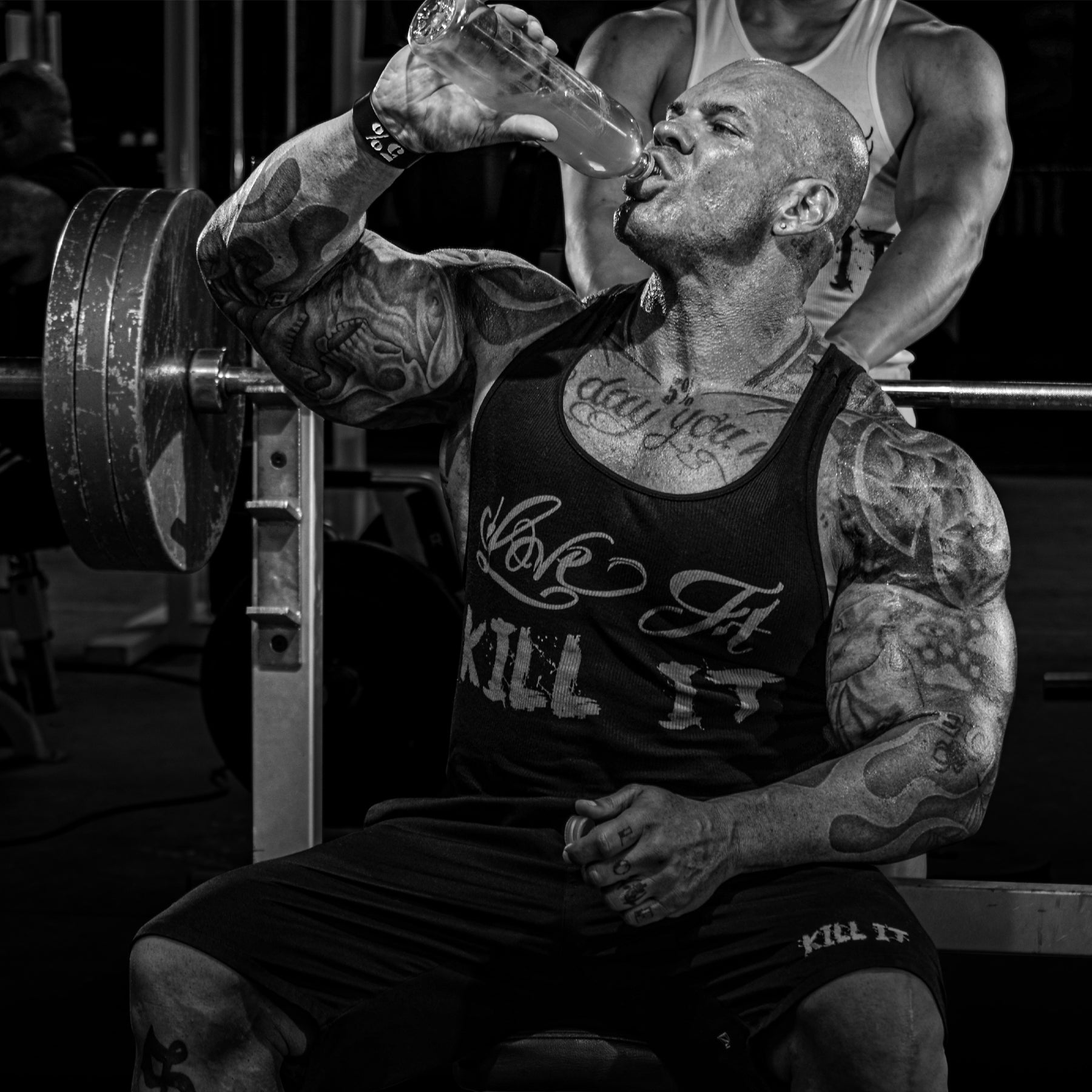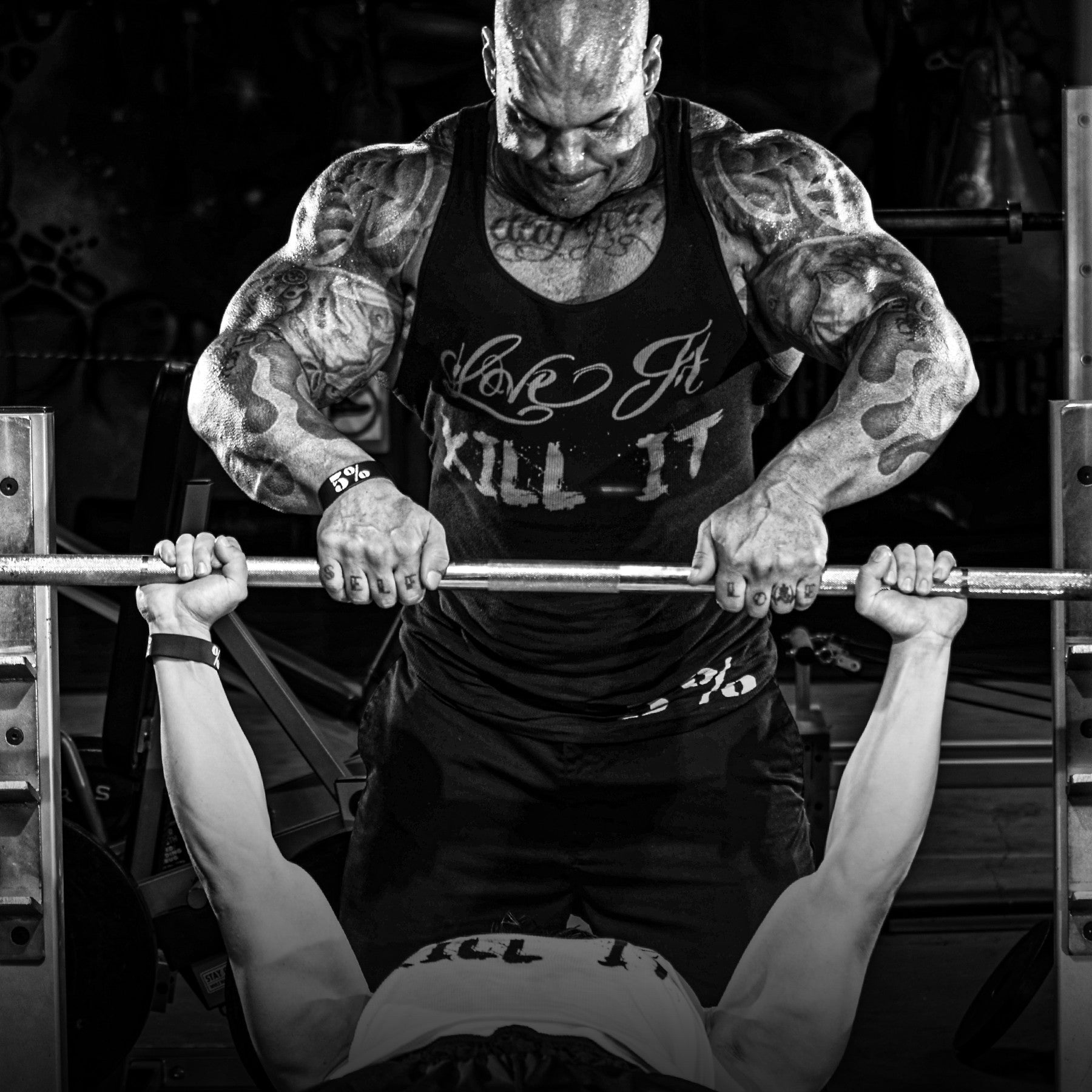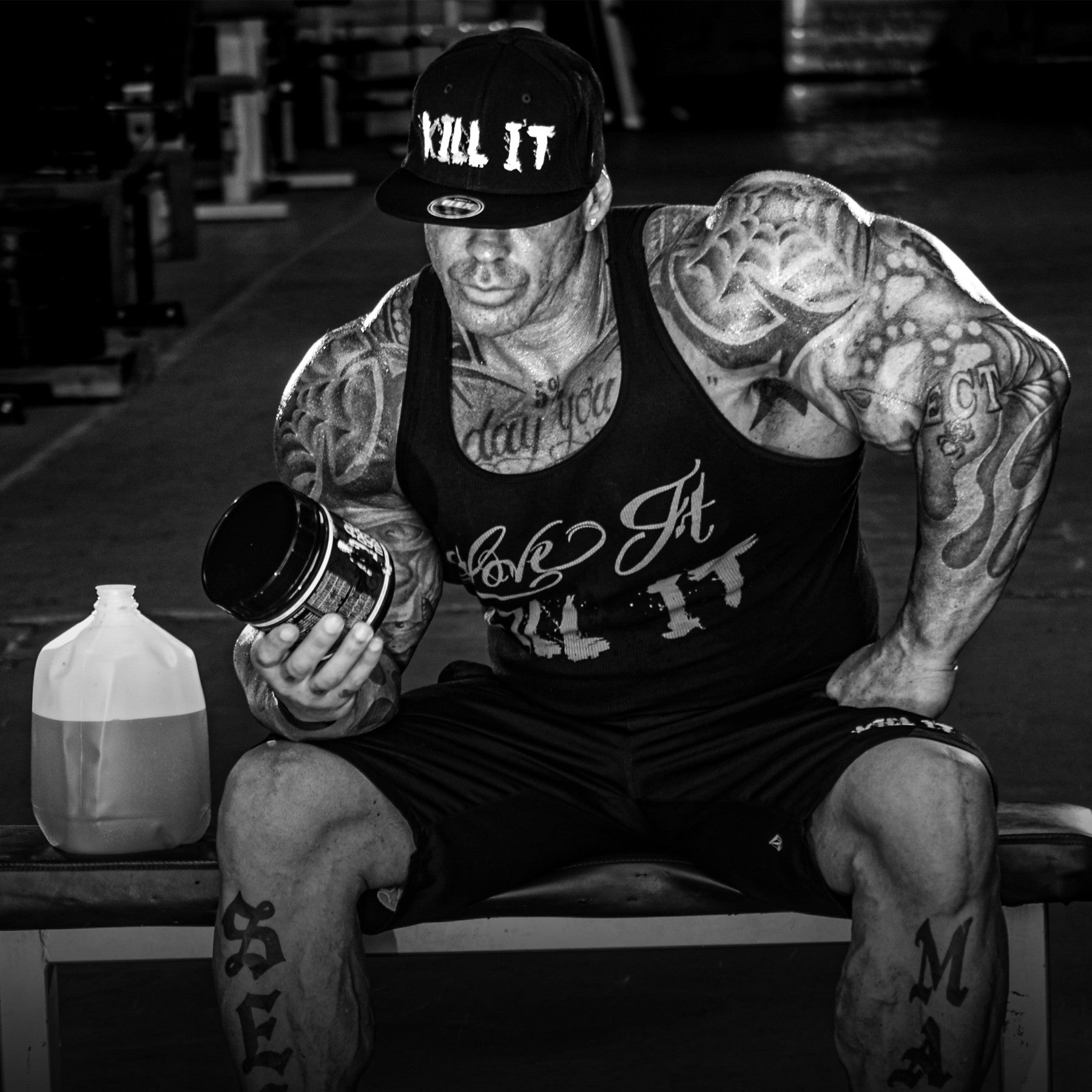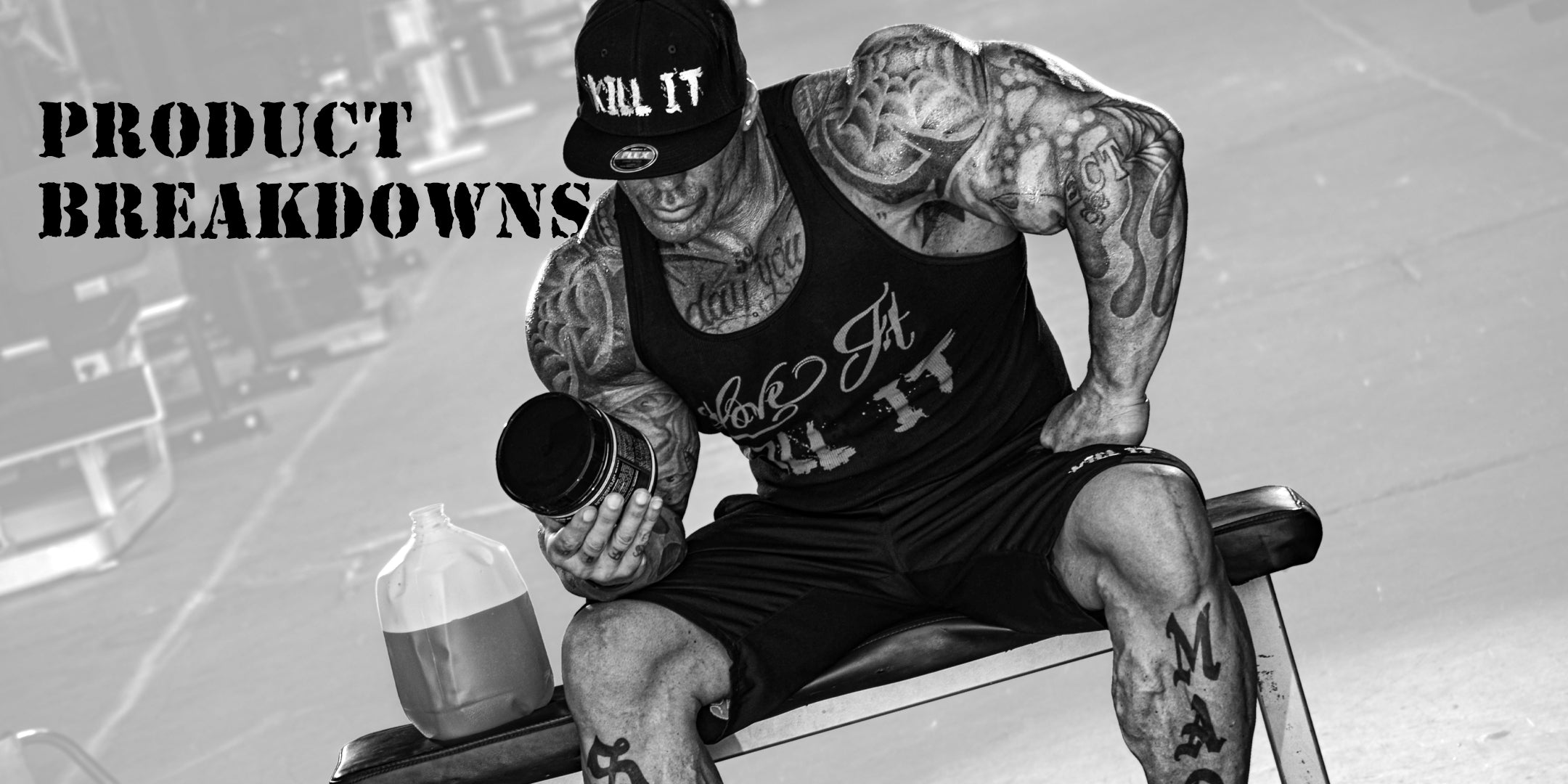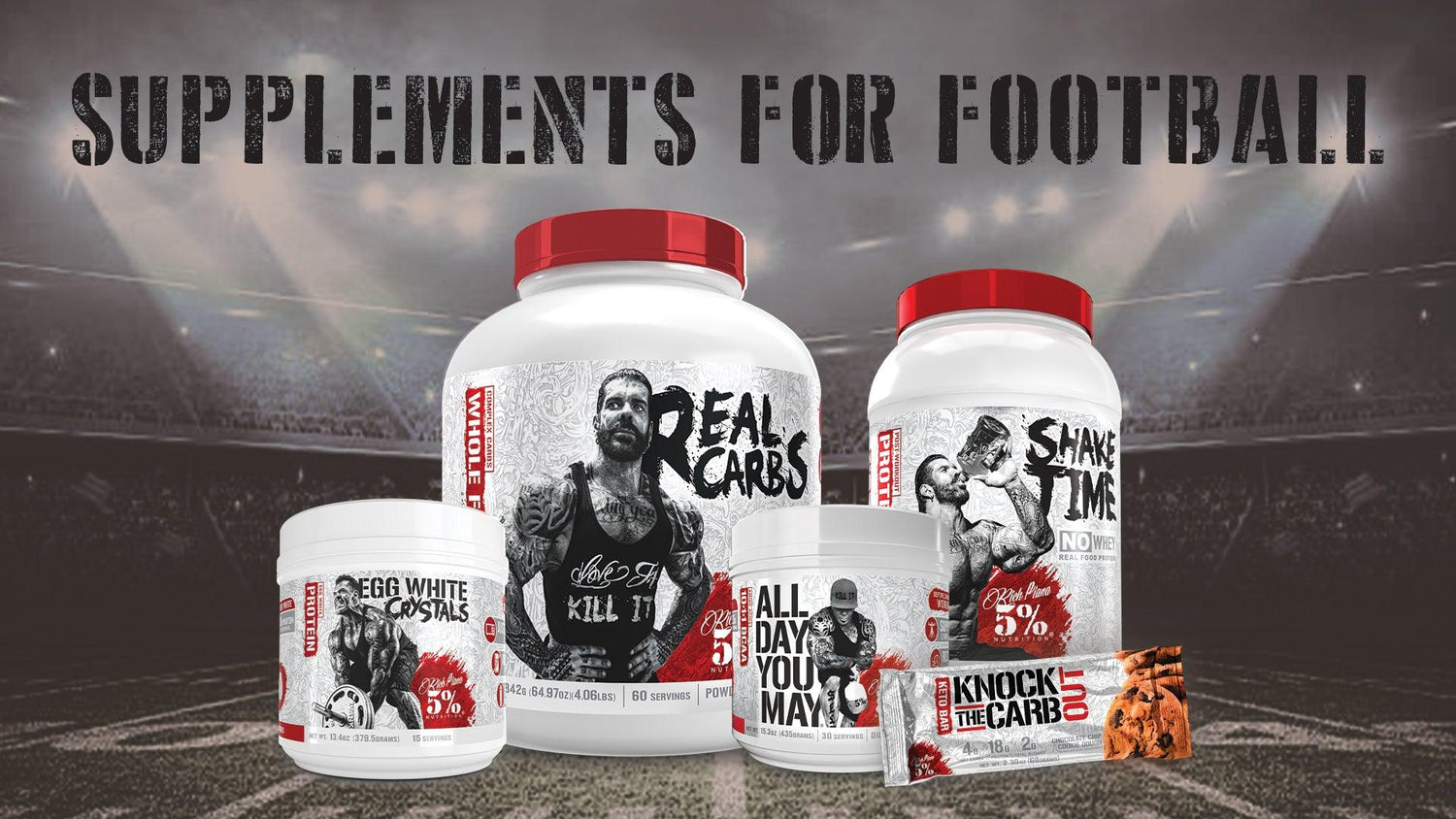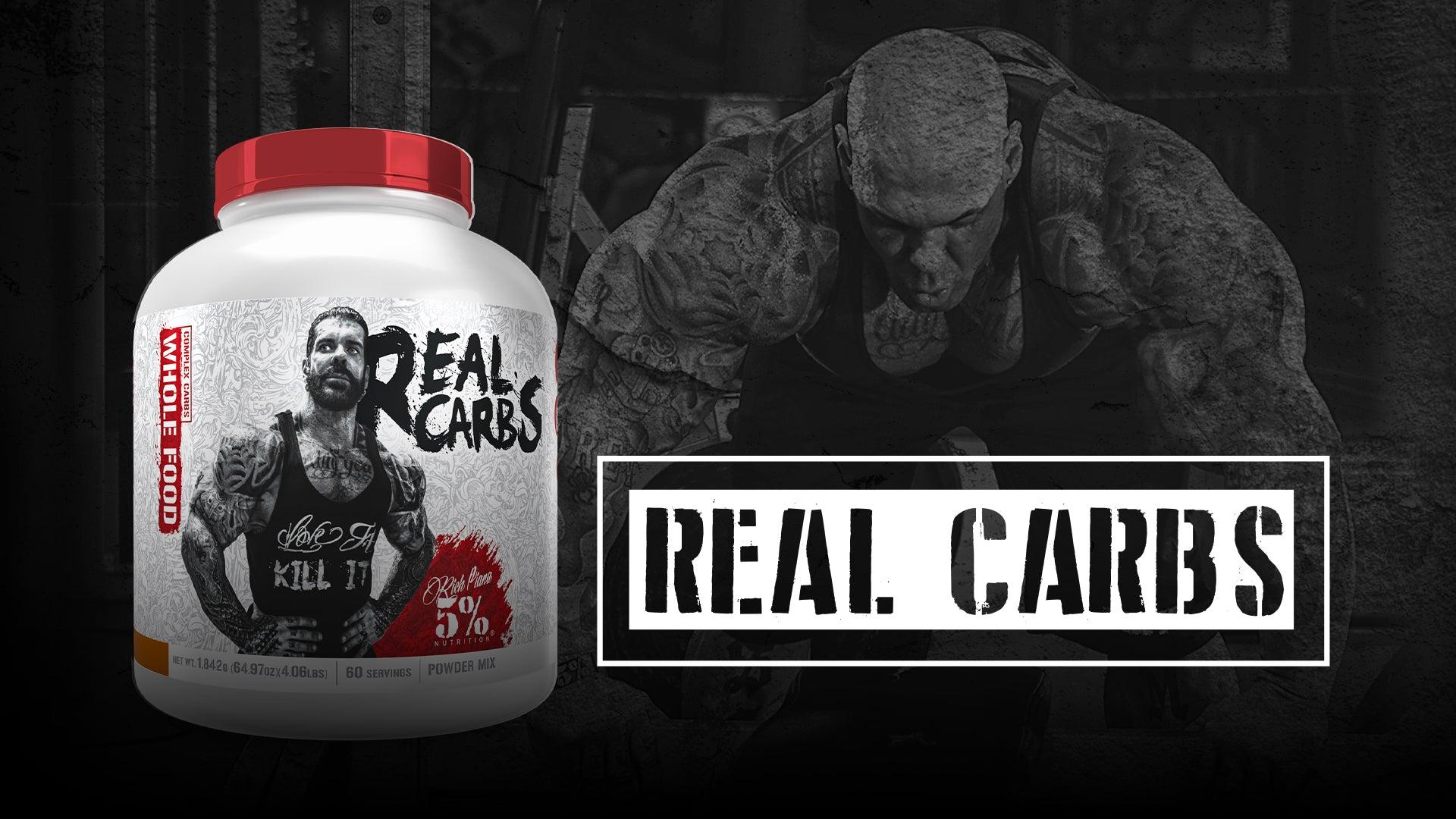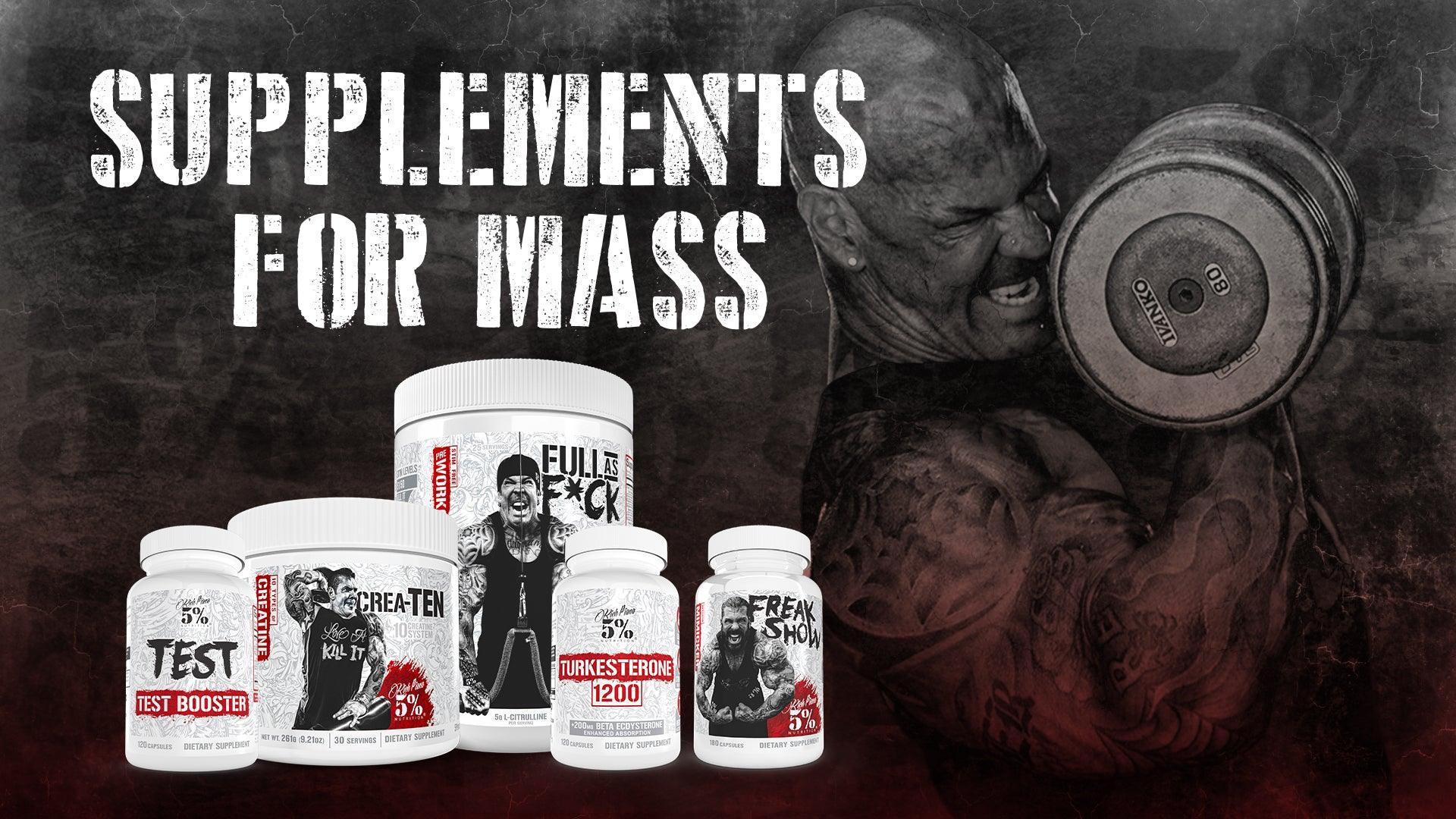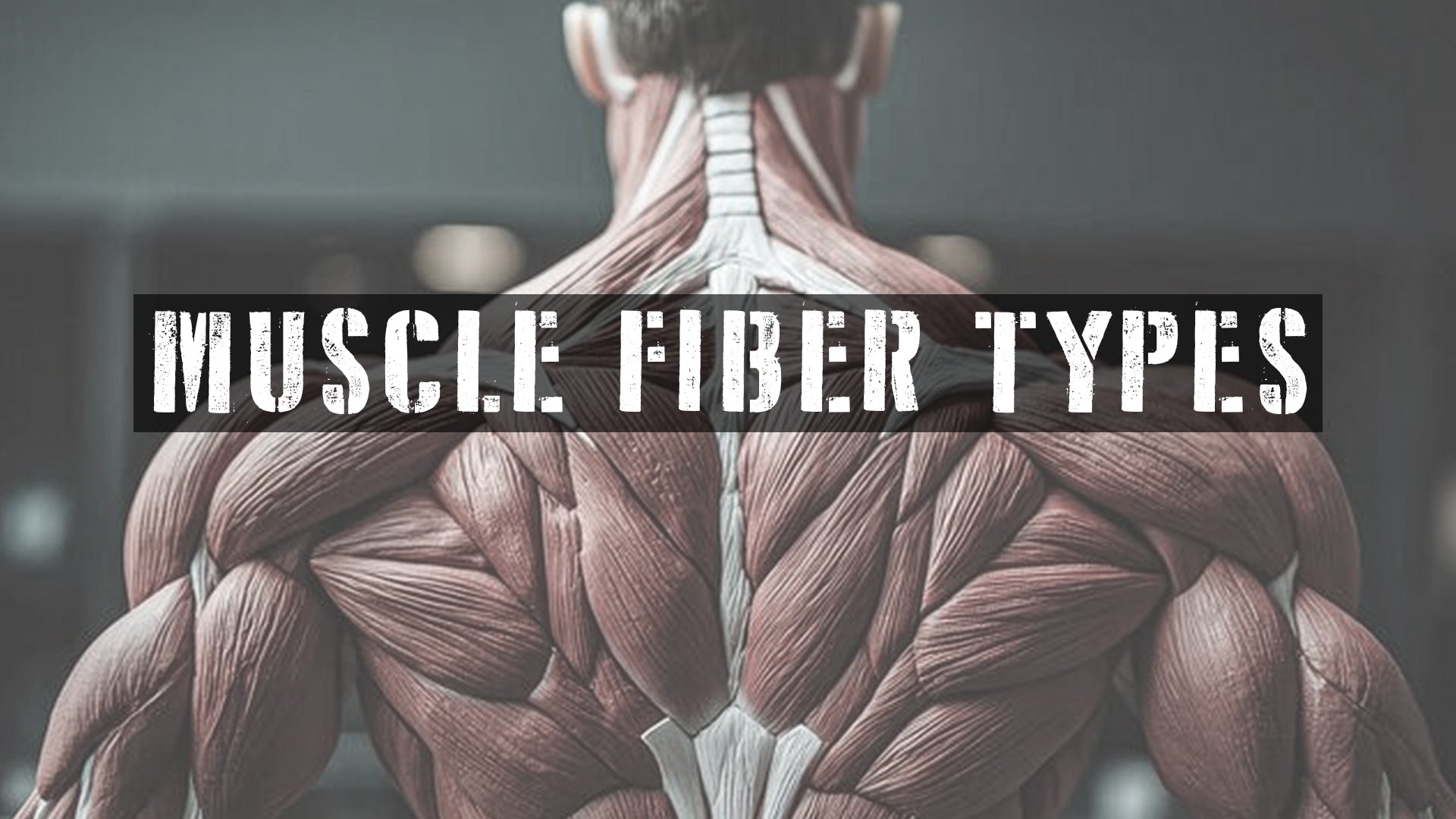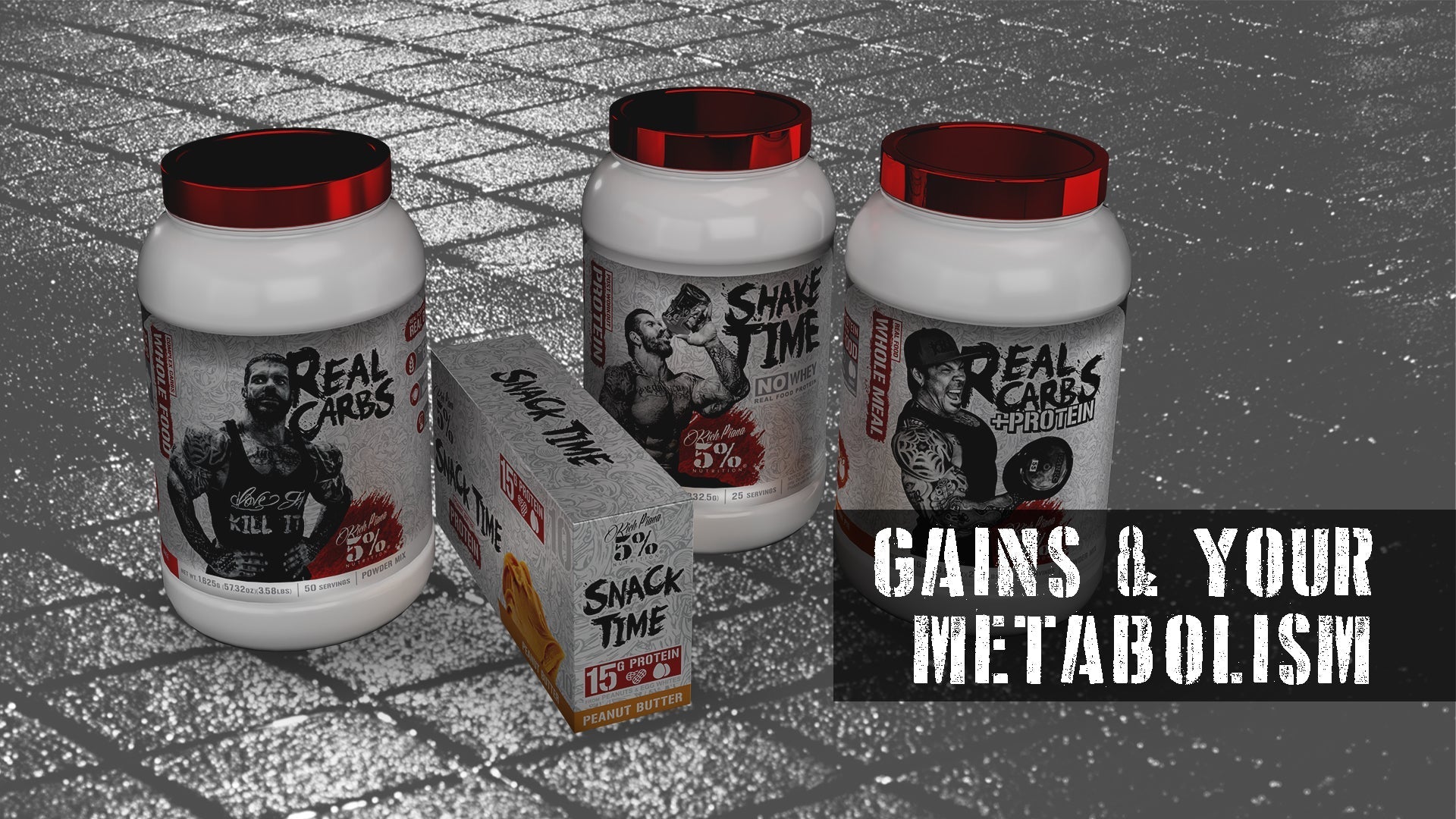If you’re playing football this year, your daily calorie requirements are about to skyrocket. Most likely, you’re going to have tough practice sessions, time in the weight room, and the actual on-field playing time. On top of that, many school football programs are still doing two-a-days. All this puts a tremendous burden on your body's energy and recovery needs. In this article, we’ll look at the best ways to meet your calorie needs for football. Plus, we’ll include routine suggestions to help you maintain your muscle mass. Finally, we’ll look at the best 5% Nutrition supplements for football. Let’s go!
Let’s Look At Your Calorie Needs
The calorie needs of the average high school or college football player can be tremendous. The average player can burn approximately 500 calories per hour during practice as well as games. This will vary per position, but regardless of position, a football player demands a lot of calories.
In fact, the first concern for any school-level football player should be: “Am I eating enough?” Because of the high endurance demands, you’ll need a lot of carbohydrates to fuel your intense schedule. Yes, you should focus first on quality complex carbohydrate foods. A great way to help you get all your carbohydrates is by adding Real Carbs to your program. This is one of the best 5% supplements for football. It’s a quick, easy, and delicious way to add real-food sourced complex carbs. 1 scoop provides 100 calories and 22g of carbohydrates. Rich used to use 2 or even 3 scoops, and that would work great for football.
So, we’ve seen that you need a lot of quality carbs. What about protein? Your protein intake should be 1 to 1 1/2 grams per pound of bodyweight. One of the best ways to make sure you meet your protein needs is to use 5% Shake Time or Egg White Crystals. Why not use both? Our legendary Egg White Crystals can be cooked up any way you like. 1 serving gives you 20g of protein.
How To Get Your Meals In
Let’s be real, it’s going to be very hard to get your meals in at school. Add to that the fact that practice is after school, and that means you have to go a long time without eating enough. Of course, your on-field performance will suffer. The answer is to first, eat a solid breakfast. Next, take 1-2 servings of Shake Time and Real Carbs with you. Or, use Real Carbs + Protein. This makes it easy and convenient. Not to mention, all 5% powders feature incredibly delicious flavors. How’s Blueberry Cobbler, Strawberry Shortcake, or Banana Nut Bread sound? That’s just Real Carbs! Go with Real Carbs + Protein, and you can get Apple Cinnamon Pie!
Also, you need to think about proper hydration during all of your football events. Plus, you have to recover enough to be able to do it all again. This is where our classic amino acid formula, All Day You May, comes in. It contains coconut water for hydration. It also supports recovery and muscle preservation. Let’s face it, intense football practice sessions can eat into muscle tissue unless your protein intake is high enough and frequent enough to offset it.
What About Different Playing Positions?
Different positions dictate different macronutrient needs. For example, wide receivers and halfbacks need speed to excel in their position. That means they develop functional, lean muscle mass. Therefore, they will need to monitor their carb intake to avoid gaining fat.
However, a bigger, heavier lineman needs a lot of functional strength and power. Often, they have a bit of fat. That means they can be a little looser with their carbohydrate intake while still eating quality calories.
Finally, are you a starter or a 2nd stringer on the bench? Once the season starts, if you are a backup or don't get a lot of on-field time, your calories need to drop. This is important because you’ll have to watch your calorie intake. That’s where using 5% supplements for football comes in. They can help you get optimal nutrition with no wasted calories.
Making The Right Food Choices
Some college teams set up meal plans. That’s fine, but you have to watch for foods that are something less than clean and healthy. There’s no reason to eat junk. If you can change your meals, or have to set up your own, here are some guidelines:
Choose quality foods as follows:
- Protein - Choose lean red meat, chicken, turkey, or fish. Also low-fat milk, low-sugar Greek yogurt, cheese, eggs, and low-sugar protein bars. The problem with protein bars is the sugar content. If your bar has more sugar than protein, guess what? It’s not a protein bar! 5% has delicious Knock The Carb Out Bars. True, it’s a keto bar, but it has 23g of carbs and 18g of protein, all from real food sources. Also, do not choose non-cow milk unless you plan to add protein to it. Most milk alternatives are low in protein.
- Carbohydrates - Choose oatmeal, whole grain bread, sweet potatoes, whole wheat pasta, brown rice, fruits, and vegetables. Most of your carbohydrate intake should be slow-burning carbs. Simple carbs can be eaten in the hours surrounding practice, games, and workouts. As noted, 5% has 3 versions of Real Carbs.
- Fats - Choose fats that occur naturally in the protein sources such as peanut butter, nuts, and seeds.
When you set up your meals, choose selections from each food group.
The Best 5% Supplements For Football
Of course, all the usual 5% supplements apply. These include your favorite 5% pre-workout, ADYM, your favorite 5% proteins, Real Carbs (or Real Carbs Rice), and Crea-TEN. From there, you can opt to add any number of 5% products.
Here are some suggestions for the best 5% supplements for football:
For Energy: Get energized with Core Energy or ADYM Caffeinated.
For Mental Performance: Get your head in the game with Core Nootropic or Mentality.
Stress: Combat the physical stress of football with Core KSM-66®.
Sleep: Get your best night’s sleep with Knocked The F*ck Out.
Joint Support: Use Joint Defender to protect your joints.
Digestion & Absorption: Get the most out of your meals and your 5% supplements with Digestive Defender.
For Your 5% Powders: Need something to take your 5% powders to school and practice? How about the 64oz Sports Jug! It’s big enough to get you through the toughest practice sessions! If you prefer something just a little smaller, there’s the 26oz Vacuum Insulated Ice Shaker Cup.
Finally, carry all your supplements with the Signature RP Crown Black Gym Bag.
What About Working Out?
Most likely, you followed a functional size and strength routine in the off-season. During the season, your goal is to maintain that mass and strength. In addition, working out in-season helps prevent injuries by training not only the muscles but also the tendons and ligaments.
Manual Resistance
One common option for in-season training is manual resistance. Most players will have lifted heavy weights on the compound movements in the off-season. However, during the season, they rely more on manual resistance movements. After the pounding most players take on the field, the last thing a player needs is to take even more pounding in the gym. Manual resistance, done correctly, is a great way to maintain muscle mass.
What Is Manual Resistance?
Manual resistance training imitates the exercise technique used by more traditional exercises. However, it uses a training partner to provide the resistance.
With manual resistance, a player must:
- Perform Slow And Controlled Reps
- Pause At Full Contraction
- Use A Full Range Of Motion
Your Training Partner Must:
- Provide Consistent Tension
As an example, let’s say you’re performing the technique and range of motion of a barbell curl. Remember, you’re just lifting your arms using a curl movement, there is no bar. Your partner would press down on your arms as you try to lift them, providing resistance.
The Weight Room
Of course, some football programs will have their players use the weight room. However, they most likely will perform scaled-back workouts. Mainly, a Coach wants to see his players maintain strength and mass. In season is not the time to build more size.
As noted, football workout routines are functional. The player will do exercises that improve their position performance. For example, along with squats, you might see a player perform box jumps. In addition, expect to see power cleans, high pulls, and barbell hip raises.
Also, a player might perform plyometric movements. This type of training improves acceleration, deceleration, and side-to-side movements. Squat jumps are an example of plyometrics. Ultimately, most school programs will have a Strength Coach to provide guidance.
The Best 5% Supplements For Football: Conclusion
Football and many other sports are endurance-heavy. That means you need carbs and plenty of them. Yet you can’t forget about protein. In this article, we covered a football player’s tremendous calorie needs, and how 5% supplements can help. We also looked at various training strategies. When it comes to football, one thing is clear. 5% supplements can make the difference for you!
